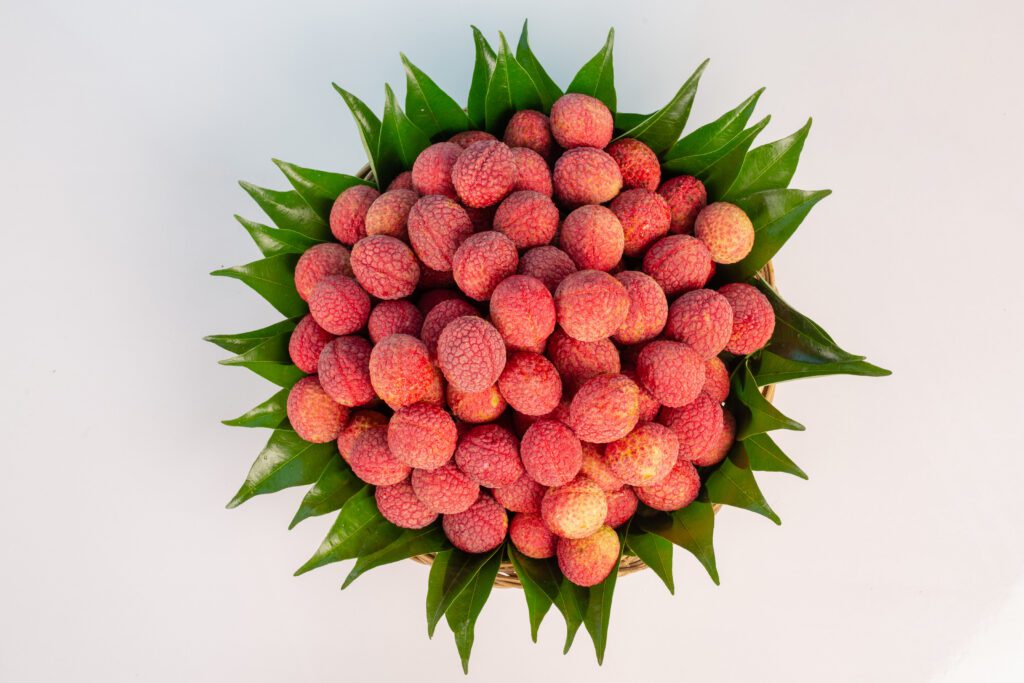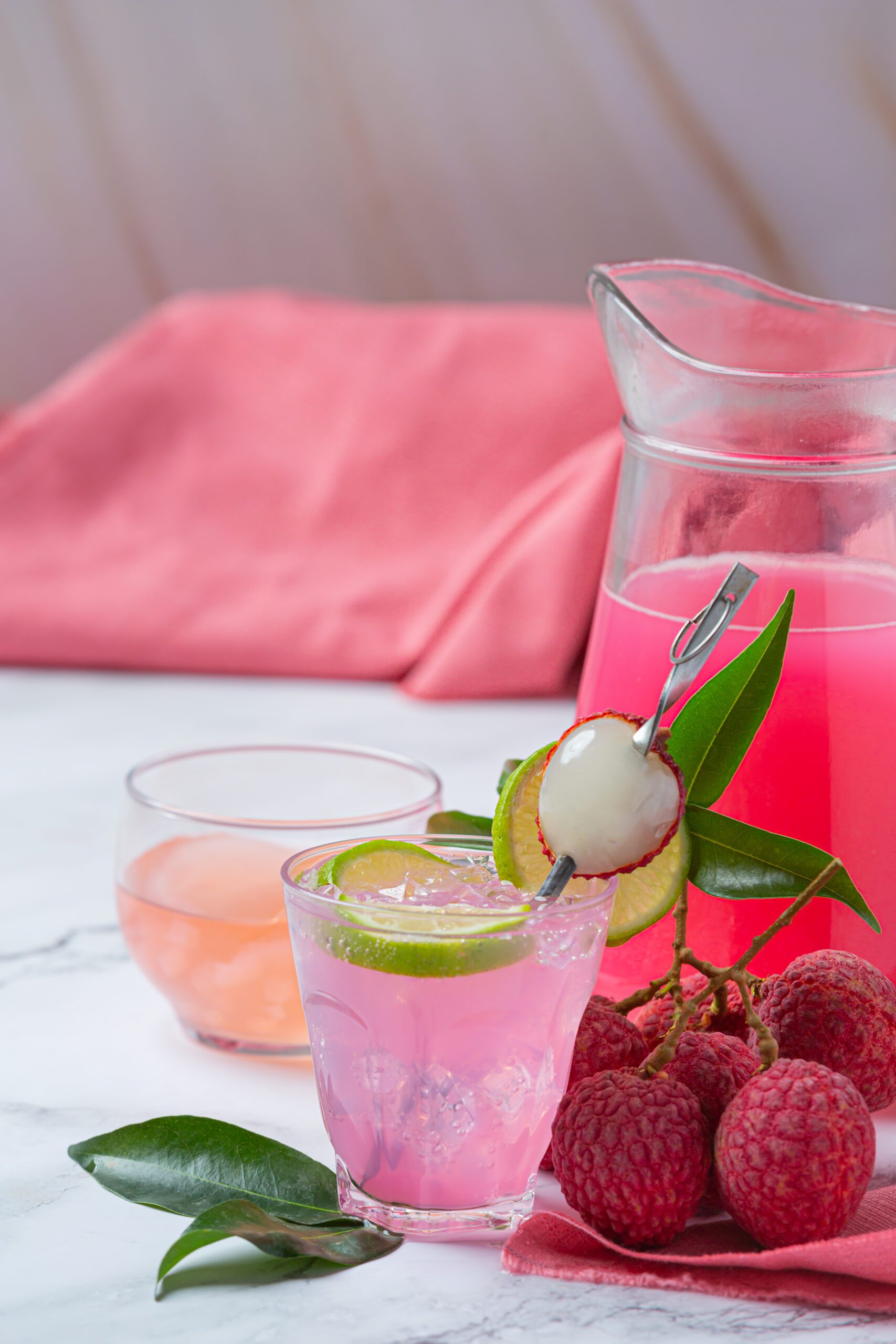Table of Contents
Overview
Welcome to the world of litchi, a delicious and exotic fruit that tantalizes the taste buds and transports you to a paradise of flavors. In this article, we will explore the origins, health benefits, culinary uses, and cultural significance of it. Get ready to embark on a flavorful journey filled with fascinating insights about this tropical delight.

The Origin and History
This fruit, scientifically known as Litchi chinensis, has a rich history that dates back thousands of years. This fruit is believed to have originated in Southern China and has been cultivated in the region for over 2,000 years. These trees were once exclusive to the royal gardens, enjoyed only by the nobility. However, over time, litchis gained popularity and spread to other parts of the world.
Health Benefits
Litchi not only pleases the taste buds but also offers numerous health benefits. This tropical fruit is packed with essential nutrients, including vitamins C and B-complex, potassium, and dietary fiber. It is known for its antioxidant properties, which help in fighting free radicals and reducing the risk of chronic diseases. it also supports a healthy immune system and aids in digestion.
Culinary Uses
Litchi’s sweet and fragrant taste makes it a versatile ingredient in various culinary creations. From refreshing beverages to decadent desserts, it adds a unique twist to recipes. It can be used in fruit salads, smoothies, cocktails, ice creams, and even savory dishes like stir-fries and salsas. The delicate flavor of it enhances the overall dining experience, making it a favorite among chefs and home cooks alike.

Varieties and Availability
It comes in a range of varieties, each with its own distinct characteristics. Some popular varieties include “Bengal,” “Mauritius,” and “Hak Ip.” The availability of this delicious fruit depends on the region and climate. In tropical and subtropical areas, these trees thrive and bear fruit during the summer season. Litchis are also exported to different parts of the world, allowing people to enjoy this exotic fruit regardless of their location.
Selection & Storage
When selecting , look for fruits that are firm, plump, and have bright-colored skin. Avoid ones with blemishes or moldy spots. These fruits are highly perishable and should be consumed or stored properly to maintain their freshness. Store them in a cool and dry place or refrigerate them for extended shelf life. It’s best to consume it within a few days of purchase to savor their optimal taste and texture.
A Symbol of Celebration
In many cultures, this fruit holds a special place as a symbol of celebration and good fortune. It is often served during festive occasions, weddings, and religious ceremonies. The fruit’s vibrant color and delightful taste make it an integral part of traditional festivities. These fruits are shared among friends and family as a gesture of joy and prosperity, adding a touch of exoticism to the celebrations.
Growing Trees at Home
If you have a green thumb and a love for tropical fruits, you can try growing theses trees at home. These trees require a warm and humid climate to thrive. They need well-drained soil and regular watering. While it may take a few years for a tree to bear fruit, the joy of harvesting your own litchis makes the effort worthwhile. Imagine plucking a fresh fruit from your own backyard and savoring its succulent goodness!
Festivals Around the World
Litchi festivals are a testament to the fruit’s popularity and cultural significance. These festivals showcase its varieties, culinary creations, and cultural performances. The renowned “Litchi Festival” in China’s Guangdong province attracts thousands of visitors each year. Other countries like Thailand, India, and South Africa also host such festivals, providing a platform to celebrate this beloved fruit and its heritage.
Use in Traditional Medicine
In addition to its culinary appeal, it has a place in traditional medicine systems. This fruit is believed to have cooling properties and is used to alleviate symptoms of heat-related illnesses. Extracts and formulations of this fruit are used in traditional remedies to promote overall well-being and address specific health concerns. However, it’s important to consult a healthcare professional before using it for medicinal purposes.
A Culinary Delight
From street markets to gourmet restaurants, it continues to captivate food enthusiasts with its delightful flavor and versatility. Its juicy flesh and floral aroma make it a prized ingredient in both traditional and contemporary cuisines. Whether it’s a refreshing litchi sorbet on a sunny day or a litchi-infused sauce complementing a succulent piece of meat, this exotic fruit elevates dishes to new heights.
Recipes to Try
If you’re ready to unleash your culinary creativity, here are a few recipes to tantalize your taste buds:
– Litchi and Mint Mojito
– Litchi Panna Cotta with Raspberry Coulis
– Litchi and Shrimp Stir-Fry
– Litchi and Lychee Martini
– Litchi and Mango Salsa
Experiment with these recipes and let the flavors of the delightful fruit transport you to a tropical paradise.
Farming and Production
Farming of this fruit is an important industry in many tropical regions. The cultivation process involves careful selection of suitable soil, proper irrigation, and regular pruning to ensure optimal growth and yield. Litchis are harvested by hand to avoid damage to the delicate fruits. This labor-intensive process contributes to the value and quality of it in the market.
Impact on Local Economies
The litchi industry plays a significant role in supporting local economies, especially in regions where it is a major agricultural commodity. Cultivation of this delicious fruit provides employment opportunities, stimulates tourism, and contributes to export revenue. Additionally, the festivals and events attract tourists, boosting the hospitality and tourism sectors. The economic impact of its cultivation extends beyond the fruit itself.
In a Nutshell
Litchi, with its enticing flavor and cultural significance, offers a taste of exotic paradise. From its ancient origins in China to its global popularity today, this tropical fruit continues to captivate food lovers and celebrate joyful occasions. Whether you enjoy it fresh, in a cocktail, or as a culinary ingredient, this fruit promises a delightful experience. So, indulge in the lusciousness of it and embrace the essence of a tropical paradise.
FAQs
1. Are litchis high in sugar?
It contains natural sugars, but they are also a good source of dietary fiber and offer various health benefits when consumed in moderation.
2. Can litchis be frozen?
Yes, it can be frozen for longer storage. However, the texture may slightly change after thawing, so it’s best to consume them fresh whenever possible.
3. Can litchis be eaten by people with allergies?
Some individuals may be allergic to it. If you have known allergies or sensitivities, it’s advisable to consult a healthcare professional before consuming litchis.
4. Do litchis have any medicinal properties?
Litchis have been used in traditional medicine for their cooling properties and potential health benefits. However, scientific research is ongoing to explore their medicinal properties further.
5. How many calories are in a litchi?
On average, a single fruit contains approximately 6-7 calories, making it a low-calorie option for a flavorful snack.

